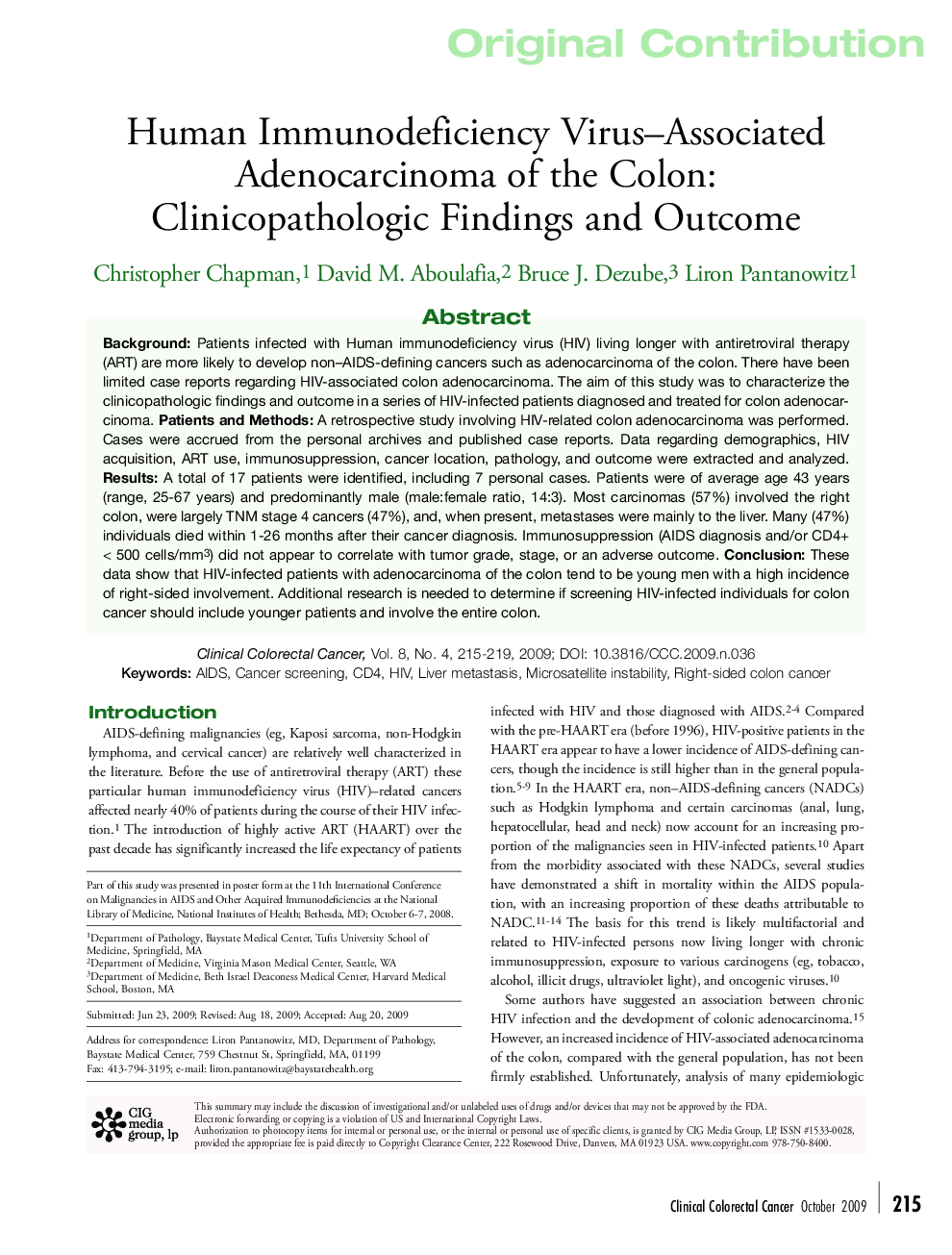| کد مقاله | کد نشریه | سال انتشار | مقاله انگلیسی | نسخه تمام متن |
|---|---|---|---|---|
| 2751739 | 1149489 | 2009 | 5 صفحه PDF | دانلود رایگان |

BackgroundPatients infected with Human immunodeficiency virus (HIV) living longer with antiretroviral therapy (ART) are more likely to develop non–AIDS-defining cancers such as adenocarcinoma of the colon. There have been limited case reports regarding HIV-associated colon adenocarcinoma. The aim of this study was to characterize the clinicopathologic findings and outcome in a series of HIV-infected patients diagnosed and treated for colon adenocarcinoma.Patients and MethodsA retrospective study involving HIV-related colon adenocarcinoma was performed. Cases were accrued from the personal archives and published case reports. Data regarding demographics, HIV acquisition, ART use, immunosuppression, cancer location, pathology, and outcome were extracted and analyzed.ResultsA total of 17 patients were identified, including 7 personal cases. Patients were of average age 43 years (range, 25-67 years) and predominantly male (male:female ratio, 14:3). Most carcinomas (57%) involved the right colon, were largely TNM stage 4 cancers (47%), and, when present, metastases were mainly to the liver. Many (47%) individuals died within 1-26 months after their cancer diagnosis. Immunosuppression (AIDS diagnosis and/or CD4+ < 500 cells/mm3) did not appear to correlate with tumor grade, stage, or an adverse outcome.ConclusionThese data show that HIV-infected patients with adenocarcinoma of the colon tend to be young men with a high incidence of right-sided involvement. Additional research is needed to determine if screening HIV-infected individuals for colon cancer should include younger patients and involve the entire colon.
Journal: Clinical Colorectal Cancer - Volume 8, Issue 4, October 2009, Pages 215-219